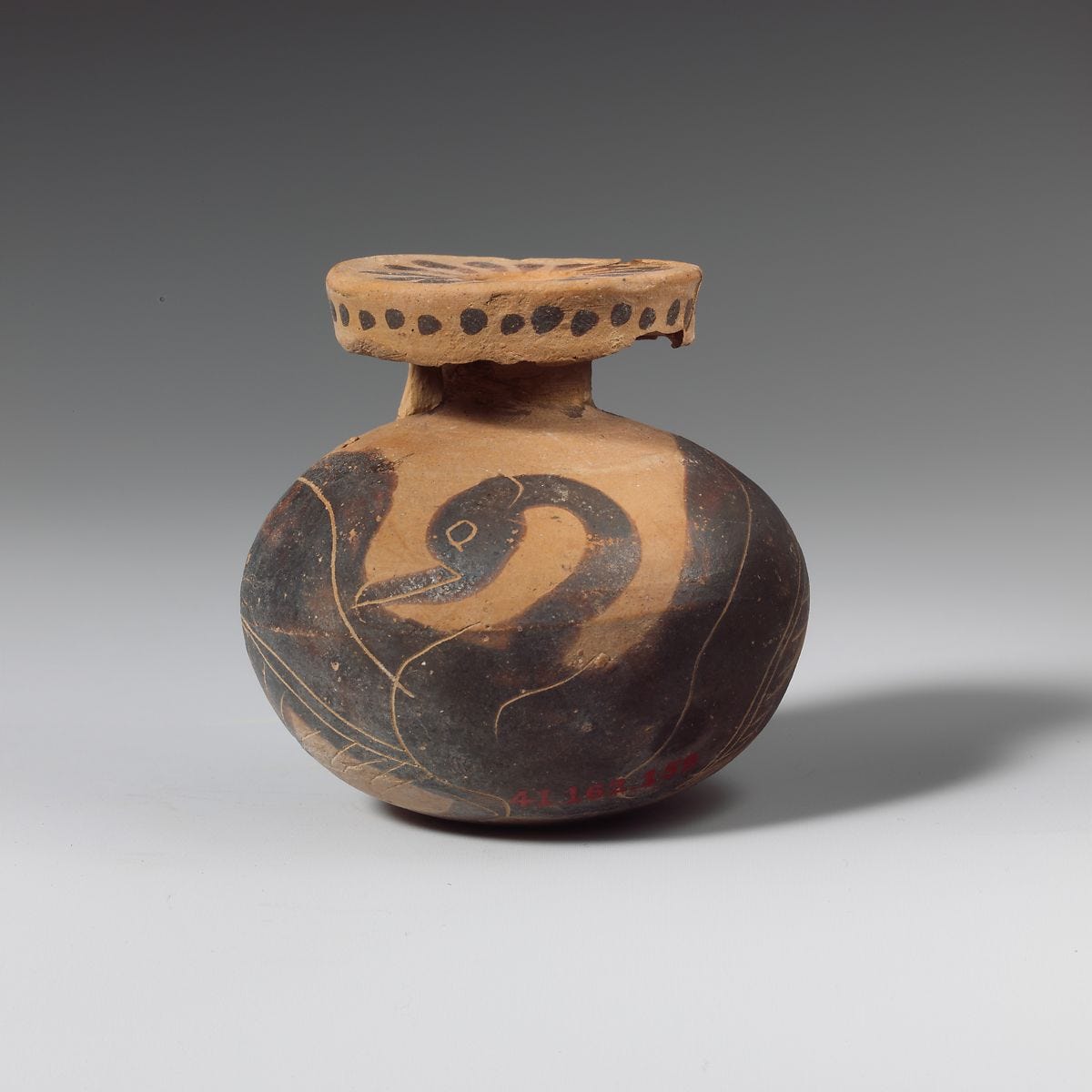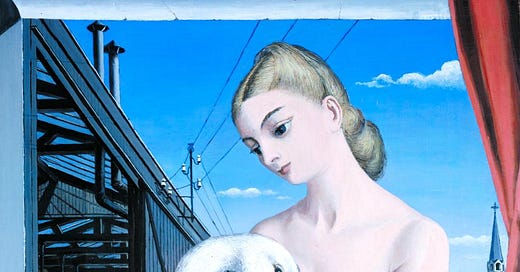#30. SWAN / CIGNE
Though cooler than the Water wasThe Thoughtfullness of Thirst / Però era més fresca que l’Aigua la Clarividència de la Set.
I could not drink it, Sweet,
Till You had tasted first,
Though cooler than the Water was
The Thoughtfullness of Thirst.
Emily Dickinson

SWAN
From ancient Greece to Siberia, from Asia Minor to the Slavic and Germanic traditions, we find a multitude of myths, legends and poems celebrating the figure of the swan: the immaculate, white and powerful bird, the image of an epiphany of light. The swan is an emblem of the supreme realization of a desire. It is a symbol of great complexity, it embodies male energy in its phallic neck and female forces in its rounded, smooth and elegant body. To its hermaphroditic ambivalence one must add a dark reverse: just as there is a single black sun and a black horse, there is a black swan. In classical Greece, the swan represents the inspiration of the poet and is dedicated to Apollo, the god of music and poetry. Apollo was born on the island of Delos on the 7th day of Targelion and the sacred swans flew over the island seven times. The swan is ubiquitous in Celtic mythology, coming or returning from the north, symbolizing angelic qualities in its return to divine origin. Alchemy associates the swan with mercury, the volatility of the wings and the androgynous qualities make it a center of mystical erudition in which fire and water merge. Swans cannot sing but emit a deaf sound, however the swan song metaphor for a heroic act before dying is kept alive today and has its origins in ancient Greece.

There are sins or (let us call them as the world calls them) evil memories which are hidden away by man in the darkest places of the heart but they abide there and wait. He may suffer their memory to grow dim, let them be as though they had not been and all but persuade himself that they were not or at least were otherwise. Yet a chance word will call them forth suddenly and they will rise up to confront him in the most various circumstances, a vision or a dream, or while timbrel and harp soothe his senses or amid the cool silver tranquility of the evening or at the feast, at midnight, when he is now filled with wine. Not to insult over him will the vision come as over one that lies under her wrath, not for vengeance to cut him off from the living but shrouded in the piteous vesture of the past, silent, remote, reproachful.
Ulysses by James Joyce

Jo no me la podia beure, Estimada,
fins que Tu la tastessis primer,
Però era més fresca que l’Aigua
la Clarividència de la Set.
Emily Dickinson

CIGNE
De la Grècia antiga a Sibèria passant per Àsia menor, pels pobles eslaus i germànics, trobem multitud de mites, tradicions i poemes que celebren la figura del cigne, l’ocell immaculat, blanc i poderós, la imatge d’una viva epifania de la llum. La imatge del cigne és emblema de la realització suprema d’un desig. Es tracta d’un símbol de gran complexitat, encarna l’energia masculina en el seu coll fàl·lic i i la força femenina en el seu cos arrodonit, suau i elegant. A l’ambivalència hermafrodita cal sumar-hi el revers fosc, invertit: de la mateixa manera que hi ha un sol i un cavall negres, hi ha un cigne negre. A la Grècia clàssica el cigne representa la inspiració del poeta i està consagrat a Apol·lo, el déu de la música i la poesia. Apol·lo va néixer a l’illa de Delos el 7è dia de Targelió i els cignes sagrats van donar la volta a l’illa set vegades. El cigne és omnipresent en la mitologia cèltica, venint o tornant del nord, simbolitza les qualitats angelicals en el seu retorn a l’origen diví. L’alquímia associa el cigne al mercuri, la volatilitat de les ales i les qualitats andrògines el converteixen en un centre d’unió mística en què el foc i l’aigua es fusionen. Els cignes no poden cantar sinó que emeten un so sord, no obstant, la metàfora del cant del cigne per referir-se a un acte heroic abans de morir es manté viva actualment i té el seu orígens a l’antiga Grècia.

Hi ha pecats o (deixeu-m'ho dir com diu el món) records lletjos que l'home amaga als llocs més foscos del cor però hi romanen i esperen. Pot ser que ell deixi que la memòria s'entarboleixi, fer com si no haguéssin existit mai i quasi pot arribar a convèncer-se a ell mateix que no foren o almenys que foren d'altra manera. Però un mot casual els evocarà de sobte i se li plantaran davant en les més diverses circumstàncies, una visió o un somni, o mentre el tamborí i l'arpa li asseressin els sentits enmig de la tranquil·litat argentada i fresca del capvespre o en una festa de mitjanit quan ja estigui ple de vi. No pas per insultar-lo se li apareixerà la visió com un sotmès a la seva fúria, ni per venjança per separar-lo dels vius sinó embocallada amb la desolada vestidura del passat, silent, remota, acusadora.
Ulisses de James Joyce



